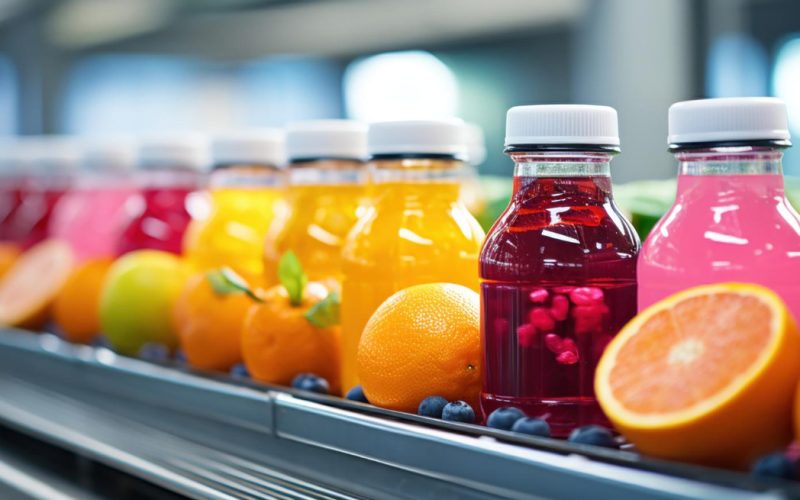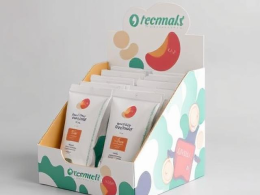Introduction
When you think of juice and beverages, the first thing that comes to mind is probably a refreshing, thirst-quenching drink, right? But behind every bottle of juice or sparkling soda, there’s a rigorous process that ensures the product is safe for consumption. That’s where HACCP certification comes in. But what exactly is HACCP, and why should juice and beverage manufacturers care about getting certified? Let’s break it down.
What Is HACCP Certification?
HACCP stands for Hazard Analysis and Critical Control Points, and it’s an internationally recognized system that ensures food safety. It helps identify and address potential risks in the food production process—from raw materials to finished products. For juice and beverage manufacturers, this means ensuring that their products are safe from contamination at every stage, from ingredient sourcing to processing and packaging.
Why Does HACCP Certification Matter for Juice and Beverage Manufacturers?
You might be wondering, “Why should I get HACCP certification for my juice or beverage brand?” It’s a good question. After all, making juice seems like a straightforward process, right? You blend fruits, add some sugar, bottle it up, and ship it out. But there’s so much more that goes into ensuring that every bottle of juice is not only delicious but also safe for your customers.
Here’s the thing: food safety is everything. In an industry where contamination can happen at any stage—from fruit picking to bottling—HACCP gives you the tools to control risks and protect both your brand’s reputation and your customers’ health.
1. Protecting Consumer Health
The most important reason for HACCP certification is to ensure the health and safety of your consumers. A contaminated beverage can cause serious health risks, ranging from foodborne illnesses to long-term health issues. By implementing HACCP, you can minimize the risks of contamination from harmful bacteria, chemicals, or allergens.
2. Compliance with Regulations
Food safety regulations are becoming more stringent worldwide. From the FDA in the United States to the EFSA in Europe, there are numerous regulatory bodies that require companies to adhere to strict safety standards. HACCP certification helps your company stay compliant with these regulations and avoid hefty fines or legal issues.
3. International Trade and Market Access
If you’re looking to expand your brand beyond your local market, HACCP certification is often a requirement. Many countries, particularly in Europe and North America, require HACCP compliance before allowing the import of food and beverage products. Having this certification in place gives you access to international markets, making it easier to expand your global footprint.
4. Brand Trust and Reputation
In a competitive market, consumers are increasingly concerned about the safety and quality of the products they buy. HACCP certification provides an added layer of assurance to your customers that your juice or beverage is safe, made with the highest standards of hygiene, and free from harmful contaminants. This builds trust and can enhance your brand’s reputation.
5. Improved Operational Efficiency
HACCP isn’t just about safety; it’s also about streamlining operations. By identifying critical control points in your production process, you can optimize your operations, reduce waste, and improve product consistency. This ultimately leads to a more efficient and profitable business.
How to Get HACCP Certification for Your Juice and Beverage Company
Now that you know why HACCP certification is essential, you’re probably wondering, “How do I get certified?” Good news—it’s a step-by-step process, and while it may seem overwhelming at first, breaking it down makes it much more manageable.
1. Understand the HACCP Principles
The first step in the certification process is to familiarize yourself with the seven HACCP principles. These include:
- Conduct a Hazard Analysis: Identify potential hazards (biological, chemical, or physical) in the production process.
- Identify Critical Control Points (CCPs): Determine where hazards can be controlled or eliminated.
- Establish Critical Limits: Set standards for each CCP (e.g., temperature, pH, time).
- Monitor CCPs: Regularly monitor the critical control points to ensure compliance with safety standards.
- Establish Corrective Actions: If monitoring indicates a problem, take corrective action immediately.
- Verify the System: Regularly verify that your HACCP system is working effectively.
- Maintain Records: Keep accurate and up-to-date records to demonstrate compliance.
2. Implement HACCP in Your Production Process
Once you’ve grasped the principles, it’s time to integrate them into your production process. This means looking at every step of your juice or beverage production, from sourcing raw ingredients to bottling the final product, and identifying potential hazards along the way.
For example:
- Are your fruits being contaminated by pesticides during the harvesting process?
- Could your production line pose a risk of cross-contamination from allergens?
- Is your pasteurization process effective enough to kill harmful bacteria?
Addressing these questions and implementing controls will be a crucial part of your HACCP plan.
3. Train Your Team
A HACCP-certified company is only as strong as its team. Ensure that all staff members involved in food safety practices are trained in HACCP procedures. This includes everyone from the production floor to quality control and management. A well-trained team will know how to identify and mitigate risks, helping your company stay on top of food safety.
4. Consult with an Expert (Optional)
If you’re unsure about the HACCP implementation process, consider hiring a food safety consultant or working with a certification body. Experts can guide you through the complexities and help you develop a solid HACCP plan tailored to your juice and beverage business.
5. Schedule an Audit
Once your HACCP system is in place and your team is trained, it’s time for the official audit. An accredited certification body will conduct an audit to assess whether your company meets all HACCP standards. This audit will look at your records, procedures, and facilities to ensure everything is compliant.
If all goes well, you’ll receive your certificado HACCP. But remember, certification isn’t a one-time thing. You’ll need to maintain and update your system regularly to ensure continued compliance.
What Are the Costs of HACCP Certification?
The cost of HACCP certification varies depending on several factors, including the size of your operation, the complexity of your processes, and the certification body you choose. While it might seem like a significant investment, the benefits—improved safety, global market access, and brand trust—make it well worth the cost.
How HACCP Certification Enhances the Juice and Beverage Industry
For juice and beverage manufacturers, HACCP certification isn’t just about ticking boxes—it’s about building a culture of safety and quality that resonates with consumers and partners alike. As a beverage manufacturer, you’re responsible for more than just the taste of your products; you’re responsible for ensuring they are safe, consistent, and trustworthy.
By adhering to HACCP principles, you not only meet legal and safety standards but also foster customer loyalty and open the doors to new market opportunities. It’s about securing the future of your business and ensuring your customers can trust every sip they take.
Conclusion
Whether you’re producing fresh juice, smoothies, or flavored waters, HACCP certification is a crucial step to ensure that your products meet the highest standards of safety and quality. It’s not just about compliance; it’s about showing your customers you care about their health and your product’s integrity. By investing in HACCP, you’re investing in your company’s reputation, future growth, and the trust of your customers.
So, are you ready to take the leap and get your juice and beverage brand HACCP certified? The process may seem daunting at first, but the rewards—improved food safety, access to new markets, and a stronger brand—are absolutely worth it. Let’s make sure your products are as safe as they are delicious.












